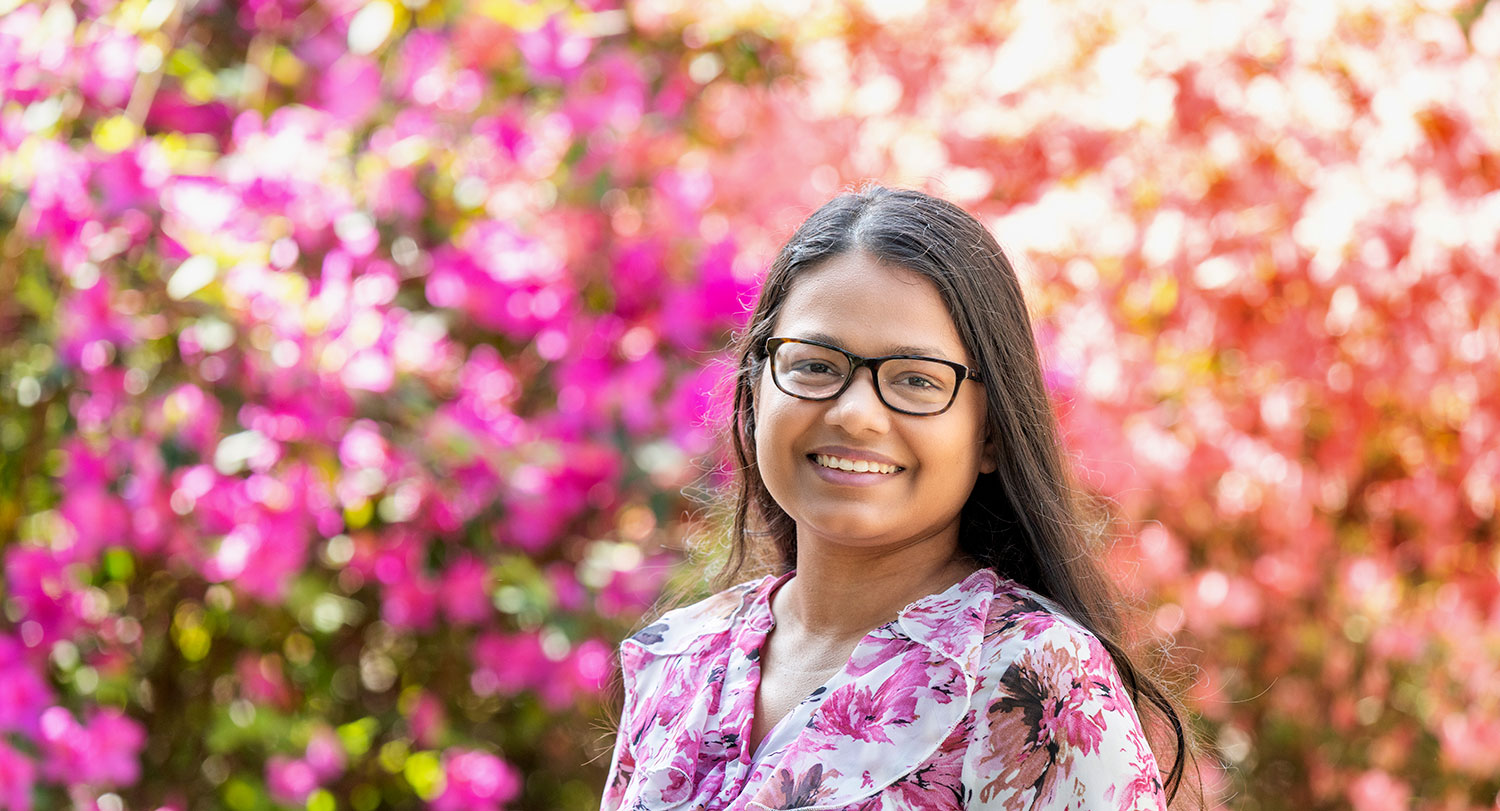
The science behind saving lives has always fascinated Vrutti Patel. Even the most mundane topics in her biology lectures captivate her.
“We’re learning about the endocrine system and how it secretes hormones, how it knows when to secrete hormones and what the optimum amount is,” she says. “Like, you can be secreting a lot, or you can be secreting less, but you would always need that optimal amount. Every time I get to learn something new, I’m fascinated — and that makes me even more interested in biology.”
When she transferred to the University of South Carolina from Newberry College, the fourth-year biological sciences major wanted to expand her horizons and get out of her comfort zone.
“I was looking for more opportunities to help me get where I’m going and really be passionate about what I’m doing,” says Patel, who has always wanted to be a doctor.
In pursuit of her goal, she looked into research being done on campus and reached out to faculty members to see if she could get involved. The first to respond was Meisam Arjmandi, an assistant professor and the director of the Translational Auditory Neuroscience Lab in the Arnold School of Public Health. The lab focuses on strengthening its understanding of human communication and improving the quality of life for people with hearing impairments.
Not only did the research topic appeal to her academically, but it also appealed to her personally. When her brother was young, he had challenges that prevented him from reaching language development stages for people his age.
“He was not able to get those words out,” says Patel, who moved to the Midlands from India when she was 12. “It took longer for him to sound out some words. We used to think that he might be deaf because hearing and talking are connected in your brain, but the doctor said there was nothing wrong with his hearing ability.”
I want to be surrounded by people who have the same mindset as me. It’s also important for me to inspire other individuals as well. If talking about myself inspires one person — even just a bit — I’m happy with it. And that’s why I went for a leadership position, so I can give back to the community.
As an undergraduate assistant researcher, Patel listened to audio files of children with hearing impairments speaking. She input data from those files into coding software and analyzed it. She says the experience helped her gain the confidence to take on more rigorous opportunities in the future.
“I acquired the skill of data analysis, and I learned how to code, which was a very good experience,” she says. “Now, I can apply these skills to clinical experience, which is more hands on.”
When she came to USC, she wanted to get involved in on-campus organizations, but she found the time and financial commitments required by some to be daunting. Then she heard about the Alliance for Women in STEM and liked its message of female empowerment. Participation in club events was voluntary and the environment was stress-free, she says. Today, she serves as the organization’s treasurer.
“I want to be surrounded by people who have the same mindset as me,” she says. “It’s also important for me to inspire other individuals as well. If talking about myself inspires one person — even just a bit — I’m happy with it. And that’s why I went for a leadership position, so I can give back to the community.”
After graduating, Patel plans to take a gap year before attending medical school.
“If there is something wrong with someone’s health, I want to be in a position where I am able to make them feel better because that’s what doctors do,” she says. “They make their patients feel better.”